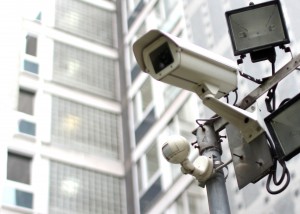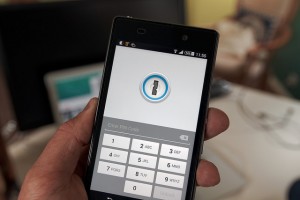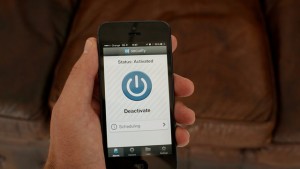 The process of researching home security systems can seem daunting. There are many factors you must take into consideration. You have to choose which company you trust to perform the work, how much you’re willing to spend, and what type of system to have installed, to name a few. The type of system you opt for can seem like a tricky decision, that’s why it is imperative to hire a licensed security professional to advise you on the best solution for your home. There are two types of systems in terms of how they are installed, hardwired and wireless. Sometimes a combination of both are implemented, it really depends on your specific needs. Here at Perfect Connections, Inc. we provide security system solutions to Northern and Central New Jersey, and can assess an individual homeowners needs for either a hardwired or wireless installation.
The process of researching home security systems can seem daunting. There are many factors you must take into consideration. You have to choose which company you trust to perform the work, how much you’re willing to spend, and what type of system to have installed, to name a few. The type of system you opt for can seem like a tricky decision, that’s why it is imperative to hire a licensed security professional to advise you on the best solution for your home. There are two types of systems in terms of how they are installed, hardwired and wireless. Sometimes a combination of both are implemented, it really depends on your specific needs. Here at Perfect Connections, Inc. we provide security system solutions to Northern and Central New Jersey, and can assess an individual homeowners needs for either a hardwired or wireless installation.
According to safewise.com, “The network of sensors, plus the control panel, make up a self-contained system that may be wired or wireless.” So what’s the difference between hardwired and wireless? A hardwired system involves installing physical wires from the various alarm components (i.e. motion detectors, sensors, etc) to the central control panel. The wires are typically hidden behind walls, which is why it’s beneficial to install this type of system in the construction phase of a home, if possible. According to asecurelife.com, “most older home alarm systems rely on hard wiring where most new systems are gravitating towards wireless or hybrid alarm systems.”
A wireless system relies on radio frequencies to transmit and receive signals between the alarm devices and the control panel; kind of like how a cell phone works. In fact, one of the major benefits of a wireless system is you have the ability to remotely control different aspects of your home via your mobile phone/device. A hardwired system may require a landline to communicate with the monitoring service, whereas a wireless system doesn’t. In this day and age, many homeowners are moving away from landlines all together, making a wireless system almost an indisputable choice. An interesting article about the seaside New Jersey town of Mantokoling describes how the phone lines destroyed by Hurricane Sandy were not rebuilt at all. Instead a wireless option was offered by Verizon. Whether by choice or natural causes, wireless technology seems to be the trend of the future.
While the decision between wireless or hardwired might seem difficult, a specialist will be able to help you figure it out, and in some cases you may not have to choose; it might be dictated by the structure of your home or the area you live in. Hiring an expert will not only save you time and aggravation, but provide you with a peace of mind knowing your system is appropriate for your home and that it was installed correctly. If you live in Central or Northern New Jersey, don’t hesitate to contact our team of licensed professionals at Perfect Connections, Inc.. We’ve been providing residential security systems services for the past 22 years. Our team is knowledgeable about the systems we install and the ever changing technology in the security systems industry.
Check out this brief list of the pros and cons of hardwired and wireless systems:
Hardwired Security System
Pros:
- It’s a reliable system
- Can be integrated seamlessly with new construction projects
- They typically have backup batteries in case of power outages
- Hardwired systems are less susceptible to electrical interferences from other devices
- Alarm will sound if any wiring is cut
- Will likely be installed by a licensed professional ensuring smoother integration
Cons:
- Can sometimes be more expensive
- May require tougher installation (drilling holes in walls etc.)
- Makes relocation of system devices more difficult
- Typically have longer more intensive installation
- Can’t bring the system with you when/if you move
Wireless Security System
Pros:
- Installation is fairly easy and quick
- Devices can easily be moved, replaced, or updated
- Can control parts of your home remotely from your mobile device (thermostats, lighting, etc.)
- System maintenance is typically easy, in most cases systems will require battery replacement
- Device software can be updated as it evolves
- May be a more economical system
- Devices are portable, making moving less of an issue
Cons:
- Can sometimes be interfered with by exterior electronic devices (baby monitors, microwaves etc.)
- Can sometimes be more susceptible to interference than a hardwired system
- Technology evolves quickly making installed devices obsolete quicker
- Devices can sometimes have sensory issues
- Structural interferences can be an issue (brick walls, old construction etc.)
If you live in Central or Northern New Jersey and would like information on any of the topics discussed above, please call 800-369-3962 or simply CLICK HERE.
Image Credits: Image by Winell Oskay-Flickr-Creative Commons
 Fire is an unpredictable force that can wreak havoc on any business. It is imperative as a business owner, facility manager, or building owner that the proper precautions are in place to help prevent catastrophe. The
Fire is an unpredictable force that can wreak havoc on any business. It is imperative as a business owner, facility manager, or building owner that the proper precautions are in place to help prevent catastrophe. The 
 As a business owner protecting your facility is always a top concern. Are you getting the coverage you need? If you have a comprehensive security system you’re already in a good position. However, a security system is only as good as the sum of its parts. One of the most crucial parts of a security system is the surveillance aspect. Surveillance systems are the eyes that keep watch over your business even when you can’t.
As a business owner protecting your facility is always a top concern. Are you getting the coverage you need? If you have a comprehensive security system you’re already in a good position. However, a security system is only as good as the sum of its parts. One of the most crucial parts of a security system is the surveillance aspect. Surveillance systems are the eyes that keep watch over your business even when you can’t. We’ve all seen those puffy white, wondrous, water vapor creations up in the sky, commonly known as clouds. These natural wonders are not the clouds we’ll be investigating here. Instead we’ll be taking a look at what the “cloud” is in relation to business networks and their security infrastructure.
We’ve all seen those puffy white, wondrous, water vapor creations up in the sky, commonly known as clouds. These natural wonders are not the clouds we’ll be investigating here. Instead we’ll be taking a look at what the “cloud” is in relation to business networks and their security infrastructure. When you’re a homeowner one of your top priorities is ensuring the safety of your home. Your home is what protects you and your family. Nobody wants to deal with a home break-in but they are a sad reality in our everyday lives. Fortunately there are many ways you can safeguard your home from such devastation. The best way to deter crime is to be prepared for it. If you want to prevent a home invasion you must first understand how and when burglars are likely to attempt them. At
When you’re a homeowner one of your top priorities is ensuring the safety of your home. Your home is what protects you and your family. Nobody wants to deal with a home break-in but they are a sad reality in our everyday lives. Fortunately there are many ways you can safeguard your home from such devastation. The best way to deter crime is to be prepared for it. If you want to prevent a home invasion you must first understand how and when burglars are likely to attempt them. At 
 Last week in our blog, we wrote about how your cell phone could be your key at your business. Now, we’d like to tell you how it could work for your home too!
Last week in our blog, we wrote about how your cell phone could be your key at your business. Now, we’d like to tell you how it could work for your home too! We use our smartphones and other mobile devices for many functions in our daily lives. It’s almost impossible to go through an entire day without seeing someone tapping, scrolling, or swiping through their phone, never mind using your own phone. We’ve created a mobile environment where convenience lies in the palm of our hands.
We use our smartphones and other mobile devices for many functions in our daily lives. It’s almost impossible to go through an entire day without seeing someone tapping, scrolling, or swiping through their phone, never mind using your own phone. We’ve created a mobile environment where convenience lies in the palm of our hands. In the wake of home automation, smart home, or connected home technology you may have come across the term Z-Wave technology. What is it?
In the wake of home automation, smart home, or connected home technology you may have come across the term Z-Wave technology. What is it? 